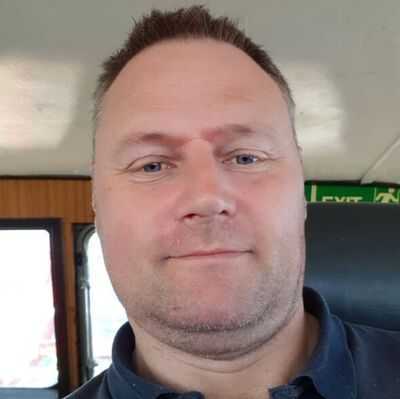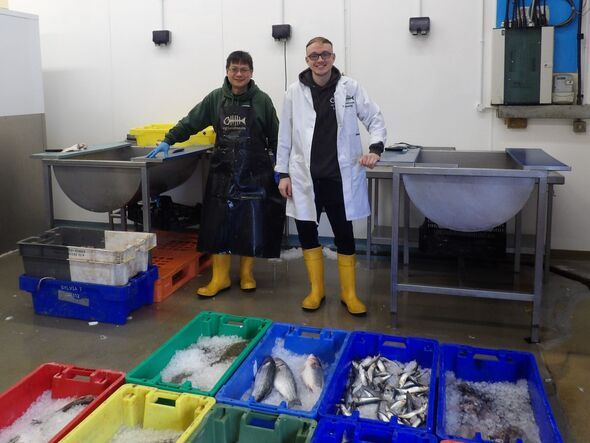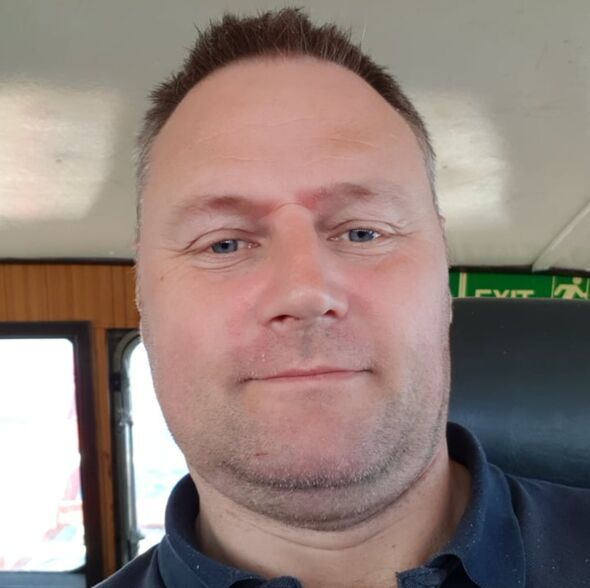

A skipper has explained just how much of an injustice the handing over of fishing rights is for the industry. Speaking exclusively to the Express, the fisherman has said there is "no support from the Government" on the 12-mile limit situation, describing it as heart-breaking.
Another fish merchant has said the industry is at 'tipping point' which in turn will have a huge effect on coastal communities. Steven Walker has been a fisherman for 35 years (a skipper for 15 years) in the Devon and Cornwall area. The 52-year-old said the current situation has been made a lot worse "due to the Government giving away access to our 12-mile limit". However, Defra has said that the recent deal with the EU "protects Britain's fishing access".
Mr Walker said: "We don't have support from the government, there has been no investment in new bigger vessels like the European ports have had - and it just goes to show that they don't care what happens to fishing.
"The demand for fish in the UK isn't as high as it is in Europe, again since the government gave it away in 1972, they have never promoted fish and fishing in this country so you could say it has been worth billions over that time."
Fish merchant Rob Goodacre and his family also rely on fishing for their livelihood.
Mr Goodacre, 57, has been catching, buying and selling fish for 36 years in Devon and Cornwall. He is behind the family business, RG Seafoods.
He said that our fish would be "more plentiful and cheaper for everyone" if the UK government woke up to the issue and addressed the 'huge disparity'.
Mr Goodacre said: "Officially, EU boats amount to 1,580 in number, catching 760,000 tonnes per year in UK waters. But the UK has just 874 boats fishing in EU waters catching 90,000 tonnes.
"At certain times of the year there can be 20-30 large European vessels fishing inside our 12 mile limit, mostly powerful French stern trawlers on the south coast and more Dutch and Belgian beam trawling vessels on the north coast.
"They have been fishing inside the 12-mile limit for the last 35 years or so, Brexit was supposed to have ended this but actually did nothing despite the rhetoric.
"The latest agreement has simply guaranteed that we will have no say on who fishes in our waters until 2038 and have no direct knowledge of how much fish they have taken."
However, a Defra spokesperson has said: "We will always back our great British fishing industry.
"We launched a brand new £360m Fishing and Coastal Growth fund just last month and our deal with the EU protects Britain's fishing access - ensuring there is no change to current fishing rights."

The Common Fisheries Policy (CFP) was introduced by the EU in 1983 to manage fish stocks - this is said by many in the fishing industry to have been the beginning of the decline.
In 2016, one of the promises of the Brexit referendum was that the UK would take back control of its waters - and fishing stock quotas, but this never happened.
Then, in May this year, the Labour government confirmed the signing of a fresh 12-year agreement allowing EU fishing boats and trawlers to continue to access British waters.
But the lack of investment and the unfulfilled Brexit promise of taking back control of British waters has in turn led to other concerns for fishermen and their families.
Rob said the fishing industry is at a tipping point as smaller and more environmentally sound boats and crews are "being marginalised by the bigger, more commercial vessels".
The combination of UK boats and the "constant presence" of the European fleet is "putting massive pressure on the stocks continually", Rob explained.
The smaller inshore fleet have less opportunities, restricted quotas and more red tape in the form of registering their catch, weighing it and finding an ever decreasing market to sell it viably, Rob added.
Fishing and agriculture have formed the backbone of Devon and Cornwall's economies long before tourism - and the fishing industry has employed many different people from fishers to various companies supporting the industry.
Mr Goodacre said: "We need government intervention to stop the decline in fishing and protect what we have and manage our waters better.
"We need our fishing fleet and our fishermen for decades to come and retain the amazing quality fish from our waters which the whole country values"
Mr Walker said: "Devon and Cornwall must retain fishing as it is part of what makes the southwest what it is, all the coastal communities would disappear if we lost the fishing.
"But because of the decline over such a long period, there isn't the workforce interested any more, so even if we regained the full entitlement of quota we are so far behind now - and we haven't got the fleet or staff."